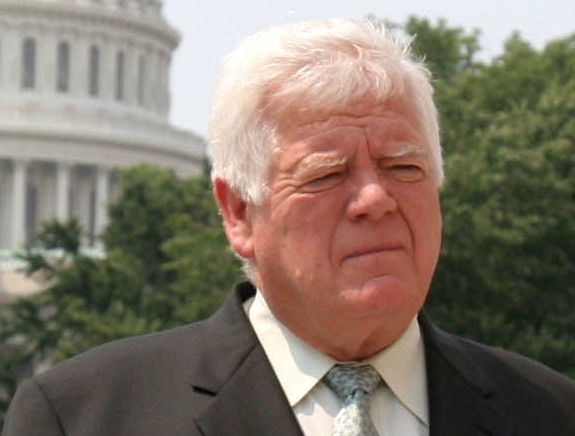Jobless Benefits Extension Stiffs High Unemployment States
Because the bill was held up for so long in the Senate, an end-of-the-year filing deadline will prevent anyone from accessing the final six weeks of benefits, according to state officials and sources on Capitol Hill.
Jul 31, 202029.8K Shares1.1M Views
Rep. Jim McDermott (D-Wash.) (WDCpix)
To hear the Democrats tell the tale, the extension of jobless benefits enacted over the weekend will provide those living in high-unemployment states with an additional 20 weeks of insurance.
Well, not quite.
Because the bill was held up for so longin the Senate, an end-of-the-year filing deadline will prevent anyone from accessing the final six weeks of benefits, according to state officialsand sources on Capitol Hill.
On Friday, President Obama signed into lawlegislation extending jobless benefits by 14 weeks nationwide, with an additional six weeks for those states where unemployment rates top 8.5 percent. Those benefits kicked in on Sunday. But there’s a glitch. The new law treats the 20-week extension as two separate extensions of 14 weeks and six weeks, with participants required to exhaust the first 14 weeks before applying for the next six. However, the current law keeps a Dec. 31 application deadline, roughly seven weeks from now, making collecting the full 20 weeks impossible.
[Congress1]That’s not all. The emergency unemployment benefits providedbeginning in 2008 are also tiered. The filing deadline applies to all tiers. That is, the new extension would effectively grandfather the unemployed into the tier where they sit at the end of December, preventing them from jumping into the next, even if they were eligible.
As a result, some members of Congress are already eying another sweeping unemployment extension, which would both address the deadline glitch and provide additional help — well beyond the six weeks in question — to those unable to find work next year, when jobless rates are expected to hover near double digits.
In a state like California, where unemployment currently stands above 12 percent, that technicality would prove significant. Loree Levy, spokesperson for California’s Employment Development Department, said Monday that an estimated 92,000 residents had exhausted all of their available unemployment by the end of October, and roughly 285,000 will be eligible for the newly enacted benefits by the end of the year. Whether they can get 20 weeks or only 14, though, depends on whether Congress extends the filing deadline.
Some in Congress are well aware of the problem. The office of Rep. Jim McDermott (D-Wash.) said Monday that he’ll be pushing a proposal to provide as much as an additional year’s worth of jobless benefits. The proposal will be wrapped into a package to include other provisions designed to ease Main Street’s pain amid the downturn, including money to subsidize COBRA health benefits, as well as a provision to extend the full federal funding of a traditionally state-federal unemployment insurance program called FedEd, which got full federal funding under the stimulus bill. Without congressional action, states would again have to pick up part of the FedEd tab at the end of 2009.
McDermott doesn’t have an easy task. The pricetag for extending just the unemployment benefits for one year is roughly $80 billion, the McDermott aide said. With deficit spending having topped $1 trillion in the last fiscal year — and with an enormous health reform proposal in the works — the congressional appetite for expensive new proposals is hardly ravenous. Still, with national unemployment at 10.2 percent— and no wave of new jobs on the horizon — even the most ardent small-government conservatives would have a tough time voting against additional relief.
*Update: The office of Senate Majority Leader Harry Reid (D-Nev.) confirmsthat Congress must pass another bill to guarantee the full 20-week extension. *

Dexter Cooke
Reviewer
Dexter Cooke is an economist, marketing strategist, and orthopedic surgeon with over 20 years of experience crafting compelling narratives that resonate worldwide.
He holds a Journalism degree from Columbia University, an Economics background from Yale University, and a medical degree with a postdoctoral fellowship in orthopedic medicine from the Medical University of South Carolina.
Dexter’s insights into media, economics, and marketing shine through his prolific contributions to respected publications and advisory roles for influential organizations.
As an orthopedic surgeon specializing in minimally invasive knee replacement surgery and laparoscopic procedures, Dexter prioritizes patient care above all.
Outside his professional pursuits, Dexter enjoys collecting vintage watches, studying ancient civilizations, learning about astronomy, and participating in charity runs.
Latest Articles
Popular Articles
